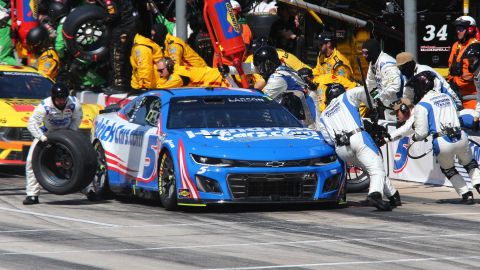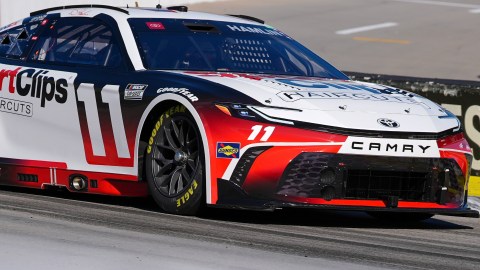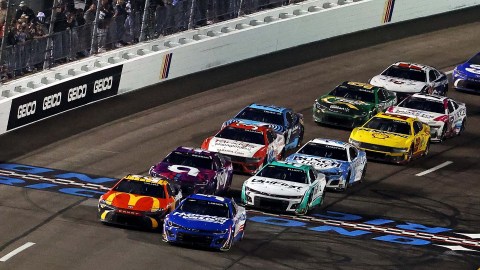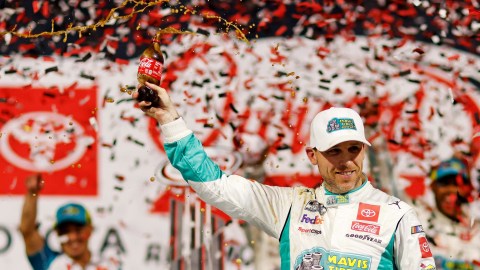Lewis Hamilton finally has assumed his rightful place among Formula One’s all-time greats.
Hamilton became a member of an elite group Sunday, when he won his fourth F1 world championship. And despite what some might suggest, the fact that he won three of his four titles during Mercedes-AMG Petronas’ recent period of dominance in no way devalues what he has achieved.
The U.K. has churned out more F1 world champions than any other country since the series was established in 1950, with 10 drivers claiming 17 titles. Yet, even though the likes of Nigel Mansell, James Hunt and Jim Clark are among that 10-person group, Hamilton now is the most successful British driver in the sport’s history.
The racer with whom Hamilton previously was level with atop that list, Sir Jackie Stewart, capped off his career in 1973 by winning his third championship at 34 years old. Hamilton, however, pulled even with Stewart at just 30 years old, and surpassed him Sunday at 32.
The age at which Hamilton became a four-time champion also stands out because that is how old Michael Schumacher was when he achieved that feat. What’s more, of the five drivers who have won four times, only Hamilton, Schumacher and Sebastian Vettel have done so before their 35th birthday.
Statistics admittedly only prove so much, and many will point to Mercedes-AMG Petronas’ four-year stretch of dominance as proof that Hamilton is given too much credit for his success. That line of thinking, however, fails to consider his performance pre-2014.
In 2007, for example, the then McLaren driver likely would have won the championship had it not been for a mistake entering the pits in China that resulted in a DNF. As if finishing runner up in his rookie year wasn’t impressive in and of itself, in doing so, Hamilton bested his world champion teammate, Fernando Alonso.
His debut season wasn’t a flash in the pan, either. Hamilton avoided a sophomore slump, winning the 2008 title on the last corner of the season finale in Brazil, besting Felipe Massa, whose Ferrari was the superior car that year.
Even the start of his time at the “Silver Arrows” speaks to Hamilton’s ability to outperform his equipment.
In 2013, Hamilton finished P4 in the championship, two spots ahead of his teammate Nico Rosberg, who had been with Mercedes since 2010. In addition, his victory in Hungary marked the first time a British driver had won in a factory-backed Mercedes since Sir Sterling Moss won the 1955 British Grand Prix.
Mercedes admittedly has been in a class all its own since the hybrid era began in 2014, but it is far from the first time an F1 team has enjoyed a period of prolonged success. Hamilton also is far from the first driver to benefit from their team’s performance advantage.
Scuderia Ferrari’s reign of supremacy famously helped Schumacher increase his championship total to seven. And more recently, during the Adrian Newey era, Red Bull Racing and Sebastian Vettel won both the driver and constructor title four consecutive years.
The pace of Mercedes’ last three Grand Prix cars admittedly has contributed to Hamilton’s numerous records, but it definitely hasn’t devalued them. A look back over Hamilton’s career to date — even without considering that he broke the color barrier in F1 — proves that he’s very deserving of a spot among the sport’s all-time greats.
Thumbnail photo via Mercedes-AMG Petronas



